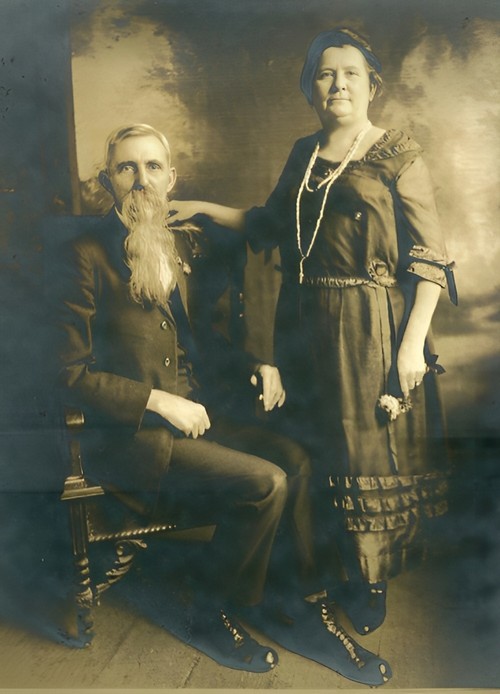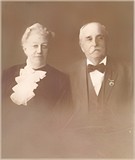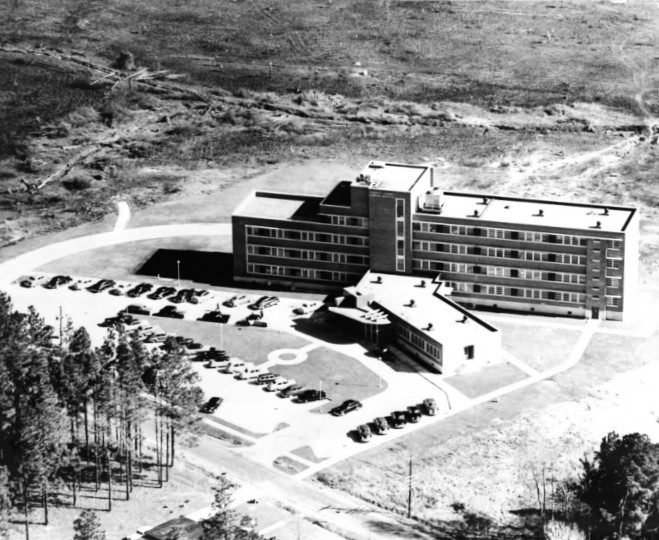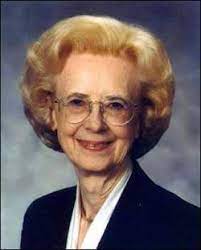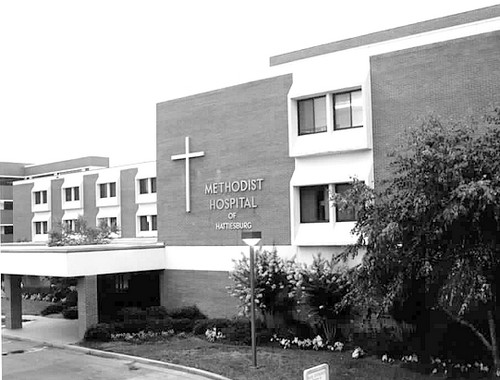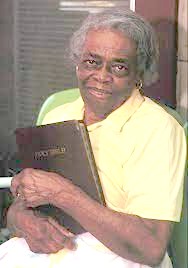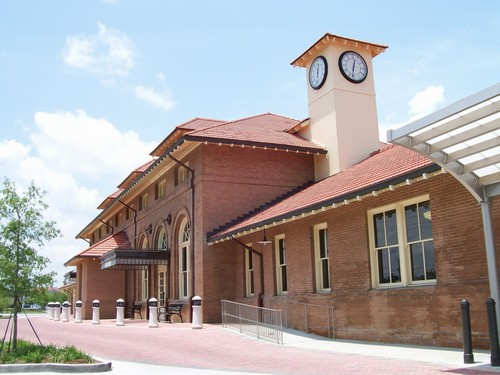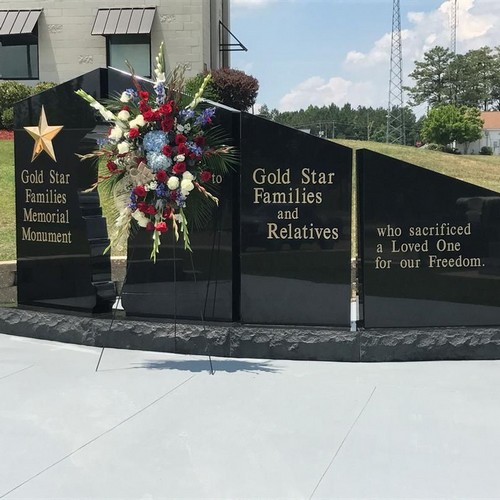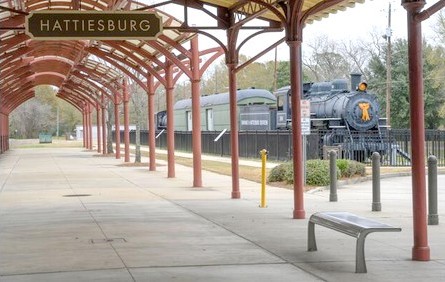Hattiesburg Area History
The Beginning
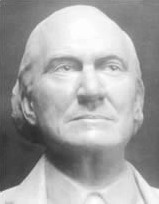
Captain William Harris Hardy, founder of Hattiesburg, was born at Collerine, Alabama on February 12, 1837. He received training in education, law, and surveying. During the War Between the States, he served as Captain of Company H of the 16th Mississippi Regiment.
In 1868, he conceived the idea of building a railroad from Meridian to New Orleans. The preliminary survey was completed in 1872, and the next several years were spent in promotion and organization.
Captain Hardy, a widower with six children, met Hattie Lott on a visit to Mobile in April of 1873. He was so impressed with Hattie's kindness of heart that he cultivated the acquaintance, and they married on December 1, 1873. The couple was extremely happy and made a home in Meridian, Mississippi, where their two sons and a daughter were born.
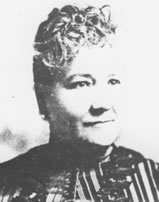
In August of 1880, during a survey trip from Meridian to New Orleans, Captain Hardy stopped to rest and have lunch. This lunch spot was on the north side of Gordon Creek near a large oak tree and several hickory trees. This location is now in the downtown section of Hattiesburg, across the street from the United States Post Office.
While resting, Captain Hardy spread a map of Mississippi on the ground and studied the surveyed line of the New Orleans and North Eastern Railroad. He was familiar with the harbor at Gulfport and believed that a railroad from the Gulf Coast to Jackson would be beneficial and would help develop southern Mississippi.
He drew a line through the virgin pine forest and intersected the New Orleans and North Eastern Railroad where the city of Hattiesburg is now located. Hardy decided to locate a train station here and named it "Hattiesburg" in honor of his second wife, Hattie Lott Hardy.
Tragically, Hattie died in 1895 without ever visiting the city named for her. To make a fresh start, a grief-stricken and now Senator Hardy moved his law practice to Hattiesburg. In 1900, he married Ida Viola May. Three boys were born to the couple while they lived in Hattiesburg. The now Judge Hardy died on February 17, 1917, at 80 years of age. He is buried in Gulfport, terminus of the Gulf & Ship Island Railroad, which he founded in 1887.
A collection of William H. and Hattie L. Hardy papers is housed in the McCain Library Archives at The University of Southern Mississippi.
Historical Timeline
Index: 1880's 1890's 1900's 1910's 1920's 1930's 1940's 1950's 1960's 1970's 1980's 1990's 2000's 2010's 2020's
- 1880's ⤴
- 1883
- The first train runs from Meridian to Hattiesburg.
- 1884
- Hattiesburg is incorporated into a town with an estimated population of 250; O. H. P. Jones
 serves as the first mayor.
serves as the first mayor. - The NO&NE Railroad track across Lake Ponchartrain is completed.
- Hattiesburg is incorporated into a town with an estimated population of 250; O. H. P. Jones
- 1888
- Trains are temporarily barred from stopping inside the city limits because of a yellow fever scare.
- 1889
- The Sullivan-Kilrain bare-knuckles boxing match is held in the nearby Richburg community; Sullivan
 wins.
wins.
- The Sullivan-Kilrain bare-knuckles boxing match is held in the nearby Richburg community; Sullivan
- 1883
- 1890's ⤴
- 1893
- A massive fire destroys many downtown businesses; new building codes requiring brick construction follow.
- W. S. F. Tatum's Hattiesburg lumber business begins.
- 1895
- The Bank of Commerce
 becomes the town's first financial institution.
becomes the town's first financial institution.
- The Bank of Commerce
- 1897
- The Hattiesburg Progress newspaper (later renamed The Hattiesburg American) is founded.
- Electric lights arrive.
- 1899
- Governor A. J. McLaurin
 proclaims Hattiesburg a "city" (population, approximately 3,600).
proclaims Hattiesburg a "city" (population, approximately 3,600).
- Governor A. J. McLaurin
- 1893
- 1900's ⤴
- 1900
- The first G&SI train runs from Jackson through Hattiesburg to Gulfport on July 4th.
- The People's Telephone Company is organized with fewer than 100 subscribers.
- Dr. T. E. Ross, Sr.
 establishes the city's first hospital, the Ross Sanitorium.
establishes the city's first hospital, the Ross Sanitorium.
- 1903
- Hattiesburg High School graduates its first class (3 students).
- City ordinance #183 creates the HPD; B. M. Moffet is police chief at the time.
- Work begins on Kamper Park.
- 1904
- Hattiesburg's VFD transitions to a paid, full-time branch of government with A. F. Potter
 as its first fire chief.
as its first fire chief. - The Commercial Club, forerunner of the Hattiesburg Chamber of Commerce, is established.
- Hattiesburg's VFD transitions to a paid, full-time branch of government with A. F. Potter
- 1906
- R. H. Hemphill
 owns the only automobile in Hattiesburg.
owns the only automobile in Hattiesburg. - The city experiences a smallpox epidemic.
- The first city streets are paved with brick.
- R. H. Hemphill
- 1907
- Hattiesburg's Walthall
 School establishes Mississippi's first PTA.
School establishes Mississippi's first PTA.
- Hattiesburg's Walthall
- 1908
- Forrest County
 is created out of a portion of Perry County with Hattiesburg as the county seat.
is created out of a portion of Perry County with Hattiesburg as the county seat. - Hattiesburg sends tornado relief aid by train to the neighboring town of Purvis.
- The city's trolley car system is under construction.
- Forrest County
- 1900
- 1910's ⤴
- 1910
- The Southern Railway Company builds the historic Hattiesburg Depot.
- 1911
- Mississippi Women's College (now William Carey
 University) opens its doors.
University) opens its doors. - The city elects its first officials under a new city commission model.
- Mississippi Women's College (now William Carey
- 1912
- Mississippi Normal College (now The University of Southern Mississippi) is established.
- R. R. Swittenburg wins a Commercial Club contest for coining Hattiesburg's nickname, "The Hub City."
- The original downtown "Hub Sign" on the Ross Building
 is activated on Thanksgiving Day.
is activated on Thanksgiving Day.
- 1913
- The city speed limit is set at 12 miles per hour.
- 1914
- Construction begins on the original Main Street YMCA.
- 1915
- The HFD welcomes its first motorized fire truck.
- 1917
- General Leonard Wood
 arrives to begin Camp Shelby
arrives to begin Camp Shelby  construction plans.
construction plans. - The Masonic Temple is built.
- General Leonard Wood
- 1919
- The Hattiesburg Country Club is founded.
- 1910
- 1920's ⤴
- 1921
- Methodist Hospital officially opens its doors.
- 1922
- The Forrest County Courthouse is built.
- Hercules Powder Company begins its Hattiesburg operations.
- 1924
- WFOR (Mississippi's oldest continuously operated radio station) begins broadcasting.
- The Mystic Krewe of Zeus holds its first annual Carnival Ball.
- 1925
- Citizens vote to replace Hattiesburg's trolley car system with buses.
- 1927
- The first traffic lights are installed.
- 1929
- The Saenger Theater, the city's first air-conditioned building, opens on Thanksgiving day.
- 1921
- 1930's ⤴
- 1930
- The original library on Main Street (now the Hattiesburg Cultural Center) opens its doors.
- The Forrest County Health Department is established.
- The municipal airport (now The Bobby Chain
 Airport) is dedicated during this period.
Airport) is dedicated during this period.
- 1932
- The historic downtown post office
 on Pine Street is constructed.
on Pine Street is constructed. - The city holds its very first Hub Fest.
- Ethel Baylis
 becomes the first woman elected to a Forrest County office.
becomes the first woman elected to a Forrest County office.
- The historic downtown post office
- 1933
- Reliance Manufacturing opens its garment production operations.
- 1935
- The Cleveland Indians and the New York Giants play exhibition games at the (then) Kamper Park ball field.
- 1936
- The Mississippi Jook Band
 performs in Hattiesburg and makes what is considered by many to be the first rock-and-roll recording.
performs in Hattiesburg and makes what is considered by many to be the first rock-and-roll recording.
- The Mississippi Jook Band
- 1938
- Recreational facility Camp Dantzler on Black Creek is established.
- 1939
- Paul B. Johnson, Sr.
 of Hattiesburg is elected governor.
of Hattiesburg is elected governor.
- Paul B. Johnson, Sr.
- 1930
- 1940's ⤴
- 1940
- Rural electric cooperatives bring "Light to the Forest."
- 1941
- The Hattiesburg Black Sox semi-professional baseball team is founded by Palmer's Crossing entrepeneur Milton Barnes
 .
. - Pearl Harbor is attacked; war-time rules are invoked at Camp Shelby.
- The Hattiesburg Black Sox semi-professional baseball team is founded by Palmer's Crossing entrepeneur Milton Barnes
- 1945
- Hattiesburg resident Jack Lucas
 becomes the youngest Medal of Honor recipient in the 20th century for his service in World War II.
becomes the youngest Medal of Honor recipient in the 20th century for his service in World War II.
- Hattiesburg resident Jack Lucas
- 1946
- The first parking meters are installed downtown.
- 1940
- 1950's ⤴
- 1950
- Lake Shelby, originally built by German WWII prisoners housed at nearby Camp Shelby, is renamed Lake Geiger
 .
. - Mrs. D. W. Holmes
 becomes the city's first woman mayor.
becomes the city's first woman mayor.
- Lake Shelby, originally built by German WWII prisoners housed at nearby Camp Shelby, is renamed Lake Geiger
- 1952
- Forrest General Hospital admits its first patient.
- 1953
- Dial telephones come to Hattiesburg.
- March of Dimes fundraising activities are held in the city.
- 1955
- Local Boy Scouts participate in the Camp Tiak dedication held at Fruitland Park.
- The city's first four-way stop sign is placed at the intersection of Sixth Ave and Adeline St.
- 1956
- The Hattiesburg area's first television station, WDAM
 , begins broadcasting.
, begins broadcasting.
- The Hattiesburg area's first television station, WDAM
- 1950
- 1960's ⤴
- 1961
- The historic Hotel Hattiesburg is demolished.
- 1963
- Hattiesburg native Paul B. Johnson, Jr.
 is elected governor.
is elected governor. - Shelby State Park is restored and its name changed to Paul B. Johnson State Park.
- The Optimist Club holds pre-registration for its new Dixie Boys Baseball Program.
- Hattiesburg native Paul B. Johnson, Jr.
- 1964
- Freedom Summer in Hattiesburg sees groundbreaking civil rights activities.
- The Tatum Salt Dome is the site of an underground nuclear test in neighboring Lamar County.
- 1965
- Superintendent S. H. Blair
 announces initial integration plans for Hub City schools
while USM
announces initial integration plans for Hub City schools
while USM and WCU
and WCU admit their first African-American students.
admit their first African-American students.
- Superintendent S. H. Blair
- 1968
- Neighboring Jones County native Roy Wheat
 becomes the only Mississippian to be awarded the Medal of Honor for his sacrifice in the Vietnam War.
becomes the only Mississippian to be awarded the Medal of Honor for his sacrifice in the Vietnam War. - The first women to serve on juries in Forrest County are sworn in by (then) 12th Circuit Court Judge Stanton Hall
 .
. - The first Magnolia Golf Classic is held at the Hattiesburg Country Club.
- Neighboring Jones County native Roy Wheat
- 1969
- Vernon C. Floyd
 opens Hattiesburg's WORV-AM, Mississippi's first black-owned and operated radio station.
opens Hattiesburg's WORV-AM, Mississippi's first black-owned and operated radio station. - Hurricane Camille hits Mississippi.
- Vernon C. Floyd
- 1961
- 1970's ⤴
- 1970
- The HAHS sponsors its first annual pilgrimage of historic homes.
- 1973
- Hattiesburg sets the record for preparing the world's largest hamburger.
- 1974
- The neighboring city of Petal incorporates.
- The Pine Belt Regional Airport begins operations.
- The Cloverleaf Mall holds its grand opening.
- 1975
- Hattiesburg native Evelyn Gandy is the first woman elected as Mississippi's Lieutenant Governor.
- The HHN holds its first annual candlelight celebration of the Christmas season.
- 1970
- 1980's ⤴
- 1980
- The new Methodist Hospital in west Hattiesburg opens its doors.
- A christening ceremony is held for the new Hattiesburg Industrial Park.
- 1981
- The Greater Hattiesburg Park is officially renamed the W. P. "Smokie" Harrington
 Baseball Park.
Baseball Park.
- The Greater Hattiesburg Park is officially renamed the W. P. "Smokie" Harrington
- 1983
- The first annual Juneteenth celebration is held in Hattiesburg.
- D.R.E.A.M. of Hattiesburg is chartered to develop a community-based drug prevention program.
- 1984
- Veterans Memorial Park opens.
- The ADP sponsors its first annual Hub Fest.
- 1985
- The former USO building on Front Street (now a Community Center) is named in honor of Jackie Dole Sherrill
 .
. - The city elects its first officials under the Mayor/Council form of government.
- The former USO building on Front Street (now a Community Center) is named in honor of Jackie Dole Sherrill
- 1980
- 1990's ⤴
- 1991
- Hattiesburg wins the top City Livability Award at the U. S. Conference of Mayors.
- 1992
- The city adopts an official flag.
- 1993
- The first downtown mural appears during this period.
- 1994
- Turtle Creek Mall holds its grand opening.
- A prehistoric archeological site is discovered on the Marshall Durbin Company property on James Street.
- 1995
- Oseola McCarty gains national recognition through her philanthropy to USM.
- The Tatum Park Recreational Complex opens.
- 1996
- The new Library of Hattiesburg Petal & Forrest County on Hardy Street opens.
- Town Square Park is dedicated.
- Olympic teams from Kenya and Malawi train in Hattiesburg.
- 1997
- A dedication ceremony is held for Veterans Memorial Drive.
- Hattiesburg declares May 15th as Police Memorial Day.
- 1998
- The Lake Terrace Convention Center opens.
- The HPD becomes Mississippi's first law enforcement agency to receive national CALEA accreditation.
- Fire destroys the historic Woods Guest House on Mobile Street.
- 1999
- The J. L. Cartlidge
 Forrest County Multi-Purpose Center hosts its first rodeo.
Forrest County Multi-Purpose Center hosts its first rodeo. - Hyett-Palmer consultants provide a blueprint for revitalizing downtown Hattiesburg.
- The Rails-to-Trails district is renamed The Longleaf Trace.
- The J. L. Cartlidge
- 1991
- 2000's ⤴
- 2000
- The newly restored Saenger Theater reopens.
- The Forrest County Tax Collector's building is dedicated to Korean War pilot Jessie L. Brown
 .
. - Hattiesburg joins the MMSA as part of the city's downtown revitalization effort.
- 2001
- The new Armed Forces Museum dedication is held at Camp Shelby.
- Johnny Dupree
 becomes the city's first African-American mayor.
becomes the city's first African-American mayor.
- 2002
- A groundbreaking ceremony for Hattiesburg's 9-11 monument is held.
- 2003
- Plans are announced for the Freedom Summer Driving Trail.
- 2004
- Joshua Bunch
 becomes the first Forrest County soldier to die in the Iraq War.
becomes the first Forrest County soldier to die in the Iraq War.
- Joshua Bunch
- 2005
- Hurricane Katrina hits Mississippi.
- The first Historic Mobile Street Renaissance Festival is held.
- 2006
- Hattiesburg's Coca Cola Bottling Company celebrates 100 years.
- A ribbon-cutting ceremony officially opens the first portion of the Evelyn Gandy Parkway in nearby Petal.
- 2007
- A gala opening is held for the newly restored downtown Historic Depot Intermodal Center
 .
. - The International Checker Hall of Fame
 in the neighboring town of Petal is destroyed by fire.
in the neighboring town of Petal is destroyed by fire. - Historic Hattiesburg High on Main Street is severely damaged by fire.
- A gala opening is held for the newly restored downtown Historic Depot Intermodal Center
- 2008
- Renovation begins on the former
 USO Club on 6th Street (to become the African-American Military History Museum).
USO Club on 6th Street (to become the African-American Military History Museum). - The Mississippi Blues Trail "Roots of Rock & Roll" historic marker is unveiled on Mobile Street.
- Renovation begins on the former
- 2009
- The first Festival South is held downtown.
- 2000
- 2010's ⤴
- 2010
- The historic Beverly Drive-in
 is destroyed by fire.
is destroyed by fire. - Chain Park at Twin Forks opens.
- The historic Beverly Drive-in
- 2011
- Hattiesburg sees its first annual Caerus Mardi Gras parade.
- 2012
- Forrest County's new jail is named in honor of (then) Sheriff Billy McGee
 .
. - Hattiesburg sees its first Halloween night parade.
- Forrest County's new jail is named in honor of (then) Sheriff Billy McGee
- 2013
- Hattiesburg Clinic celebrates 50 years of service.
- 2016
- The results of a tourism contest are announced: Hattiesburg residents are "Hattiesburgers." :)
- 2017
- Groundbreaking is held for "The District" at Midtown.
- 2018
- The Gold Star Families Memorial at Camp Shelby becomes a reality.
- A new three-sided replica of the original "Hub Sign" ushers in the city's first annual Front Street New Year's Eve Celebration.
- 2019
- The Twin Forks Rising Community Development Corporation (redevelopment of Ward 2) holds a ribbon-cutting ceremony.
- 2010
- 2020's ⤴
- 2020
- A statue of civil rights leader Vernon Dahmer
 is unveiled outside the Forrest County Courthouse.
is unveiled outside the Forrest County Courthouse. - Forrest County and Hattiesburg officials declare COVID-19 a local emergency.
- A statue of civil rights leader Vernon Dahmer
- 2021
- Preservation Crossing, an age-restricted apartment facility, moves into the renovated HHS building on Main Street.
- Peggy Sealy
 is the first woman officially named as the city's police chief.
is the first woman officially named as the city's police chief. - Mystee Dale
 is the city's first female firefighter.
is the city's first female firefighter.
- 2022
- The HPD holds a ribbon-cutting ceremony for its new Public Safety Complex.
- The MHT recognizes Mobile Street's Smith Drug Co. restoration project.
- 2023
- City Hall is 100 years old.
- The 10th Circuit Court allows the 1925 B&HS Engine #300 to remain at Hattiesburg's historic train depot.
- 2024
- Terri Bell
 is elected as the first female president of the Forrest County Board of Supervisors.
is elected as the first female president of the Forrest County Board of Supervisors. - Dr. Jennifer Peterson
 is the city's first poet laureate.
is the city's first poet laureate. - The Serengeti Water Park opens at Kamper Park over the Memorial Day weekend.
- City planners initiate the "Right Down Broadway" program to revitalize portions of Broadway Drive & West Pine Street.
- The new East Hardy Street bridge to neighboring Petal opens.
- Work progresses on the ADP-sponsored Eagle One Mega Site and the I-59 Supply Chain Park.
- Terri Bell
- 2025
- Mississippi Power Company celebrates 100 years of service.
- The new Hall Avenue east
 and west
and west overpasses are open.
overpasses are open.
- 2020

